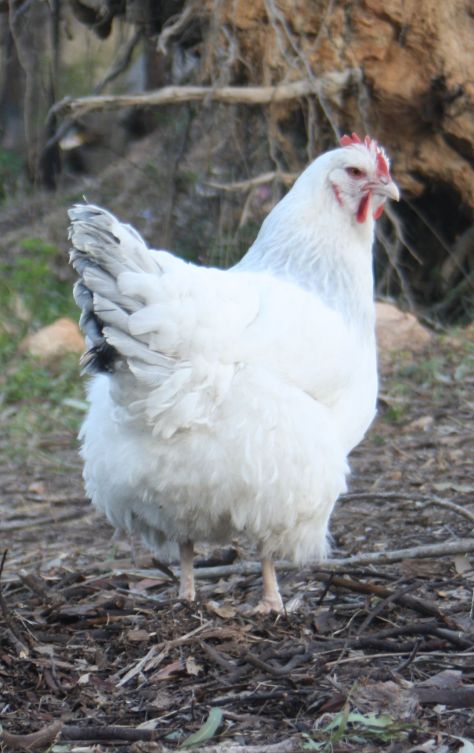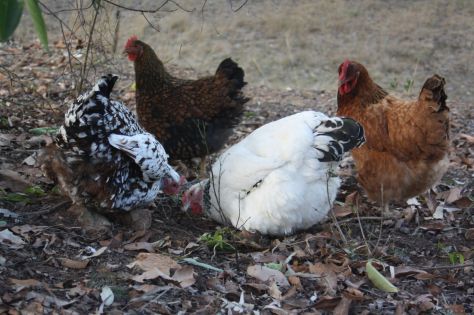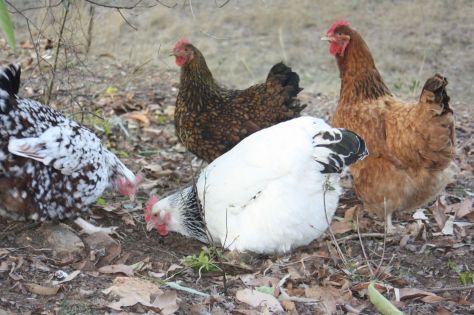So last Saturday I had the pleasure of stepping into the hot seat at the ABC radio studio and have a chat about chooks and take listeners calls regarding some of the issues that they are having with their feathered friends. As expected there are always some questions that can have one a bit stumped.
But the other catch with talkback radio is that you don’t always have time to go through every possible option when problem solving your chook questions. So I thought it a good idea to have a blog after each session (there’ll be one a month) to expand a bit on some of the topics covered.

Q1: Transporting chooks – best options.
Top tips; remember ventilation and protection from the elements. Be sure to have some absorbent bedding on the bottom of the carriers or transport boxes so that the chickens don’t slip around and injure themselves and also it can absorb the droppings whilst travelling. Keep out of the sun and avoid transporting in extremes of weather, especially heatwaves.

Q2: Introducing new chooks – the how to.
The best option really is to have a divider up in your housing and coop, so that the older original chickens can see the new ones but can’t access them. Hopefully after a few weeks this divider can be removed and all will be well. This is not always the case, so you must monitor the situation carefully so that the new chickens are not severely harassed or harmed by the older birds. I find introducing more than one at a time can be helpful.

Q3: Rats – There are many options here.
With poisons you have to be very careful your flock does not accidently get access to it or children and wildlife and when you find any dead vermin they must be disposed immediately. Other options – old fashioned snap traps, humane traps which catch rats live but remember then you have to dispose of them and of course there are the options of having cats & terriers on the hunt.
The best course of action is hygiene and leaving no excess feed about.
Ultrasonic repellers can work as a preventative but if you already have infestations they won’t be of much help. If there are rat droppings evident in the coop, clean out the whole coop. Wear a dust mask and rubber gloves as rats can sometimes carry diseases. Disinfect with water and vinegar or bleach. If using bleach wash out coop thoroughly afterwards.

Q4: One pure bred breed for temperament and eggs
This is a hard one as there are so many purebred poultry breeds that I like for both their temperament and reasonable egg to good laying ability. But to choose one, I’d go for the Australorp. This chicken is the most beautiful shiny black with dark beetle green sheen to their feathers, big round bodied birds with the loveliest dark brown eyes. They’re are generally very friendly and docile and are happy to be handled.

Q5: No eggs – why?
This can be due to a multitude of reasons. Poor diet, they have run out of water, end of laying life, which can be the case with the commercial hybrids layers, a lot of people are opting for these days. They will lay fantastically for 2-3 years max and then just stop. So if you are rescuing caged hens be aware that you may not get a lot of eggs after about 1 year.
Other factors that can stop egg laying are – weather extremes, heat wave, cold snaps, exposure to the elements, even a scare or fright from dogs, cats or being chased around and around by children can cause egg production to stop for a while. And some breeds just don’t lay a lot of eggs full stop. So do your research before embarking on the world of chook keeping.
Q6: Roosters in suburban Brisbane – council regulations
This is an easy one. No. No roosters in suburban backyards unless over an acre and as long as the neighbours don’t complain.
Looking forward to the next Chook Talkback on ABC 612 – early August.


